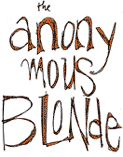 |
 |
 |
 |
A Story About Babies
As told to Oisin Vertumnus Witkin, my friend's new baby, when he couldn't sleep.Once there were eight babies. They had been hatched from two eggs from a mortal mother. The first egg had contained babies born of an immortal father, the second egg babies from a mortal father. The babies had a total of eight disabilities: the first baby was deaf, the second baby was mute, the third baby was blind but had a wooden eye, the fourth baby had a harelip, the fifth baby was very short, the sixth baby had a thalidomide arm, and the seventh baby was a drunk, and the eighth baby was just plain bad. This baby was known as the "bad baby."
The babies' mother lived in abject poverty because she had rejected the patriarchal concept of a male god, even with a lowercase g, so she got no help from her immortal lover, who was offended by this. Her mortal lover, whom she loved, had been incinerated in a duel with her immortal lover, and his golden ashes, with their vague odor of immortality, rested in a white lusterware coffee cup on the living room mantel. Sometimes the babies were tempted to use these ashes for Ovaltine, but they did not, for a sense of what was sacred had been instilled in them at an early age.
You may wonder why the babies' immortal father did not at least provide milk, diapers, and sugarplums directly to his own progeny, even though he despised their heretical mother. This was because the babies' mother had, shortly after her eggs had hatched, mingled the pieces of eggshell with the soil of her garden in order to facilitate the growing of plants (namely some verbena and some catnip), and had also forgotten which baby came from which egg. So the immortal father didn't know which babies deserved divine diapers and ambrosial milk, and which deserved fresh indignities to be heaped upon their mortal heads at each day's dawning, and he left them alone. The babies themselves did not know who among them was immortal, either, and so their godly powers stagnated in the plumpness of their deformed flesh. The Bad Baby hoped that he was a god because if he was a god he could crush everyone under his jackboot, and his siblings hoped that he was not a god for this same reason.
Abject poverty was not so bad for the babies because they got a lot of freedom to get up to mischief. They lived in an oversized cradle and mostly fed upon gnats, and while their mother was looking for work they would stage petit guignols and burlesque performances. The Thalidomide baby was the best at impersonating a Parisian demimondaine because, as Henry Miller has noted, the Parisians have a taste for incomplete or unusually-formed women. Emerging from an explosion of pitch-black Venetian lace, the Thalidomide baby's tiny pink arm looked like a stick of weird and delicious candy, which gleamed steadily on as the babies danced and twisted, their kicking legs reaching vertiginous heights. These displays of infantile eroticism were, of course, not meant to titillate: the babies were only imitating their favorite Broadway prostitutes, the whores from Les Miserables, whose misery and defilement the innocent babies would never understand. Similarly, the oozy massacres on display at their guignols -- they decapitated tubes of jam-filled dough with their mortal father's cigar-cutter and quoted Shakespeare's "Coriolanus" -- did not stem from any actual bloodlust, but rather a healthy interest in the human and animal life-cycles.
When they were not performing, the babies occupied themselves with household tasks like knitting and carpentry. They also played "house" because they lived in an apartment, and "school" because they were too young and peculiar to go to school. Once they played "prom" and the baby with the wooden eye asked the baby with the harelip to dance, and hilarity ensued--so much, in fact, that the babies spilled the entire bowl of Ecto-Cooler that their mother had prepared for them in lieu of punch, and punctured several bilious-looking balloons with their high-pitched laughter.
Once one of the babies had a throbbing vein in its forehead and sharp teeth and took to flying around biting people's throats and killing them. It was soon discovered that this baby was an impostor. The killer baby was immediately dispatched to Hell by the Bad Baby, who did not relish losing his title.
The babies' contributions to popular culture are innumerable. Here is an example. Whenever the Bad Baby had a little money he would buy a cigar and tool around town in its bowler hat, smoking. Once it was arrested for being bad and put in baby jail, which was just a tiny improvised cradle with bars all around it, set up in the regular jail. A local musician who had been arrested for loitering noticed the unrepentant baby chomping on its cigar, its golden forelock clinging to its dewy forehead, and was inspired to create the seminal rock outfit "Bad Baby," whose logo is a frowning baby with one of those "No Smoking"-type signs over it.
The babies have also made contributions in these fields: historical linguistics; trauma theory; lipstick adhesiveness; tango; cold fusion; suckling; industrial design; product placement; canoeing.
The thing about the babies is, no matter what happens, they love each other and they love their wayward, agnostic, overworked, sloppy brunette of a mom. Love is the best treasure on Earth. They will always be together!